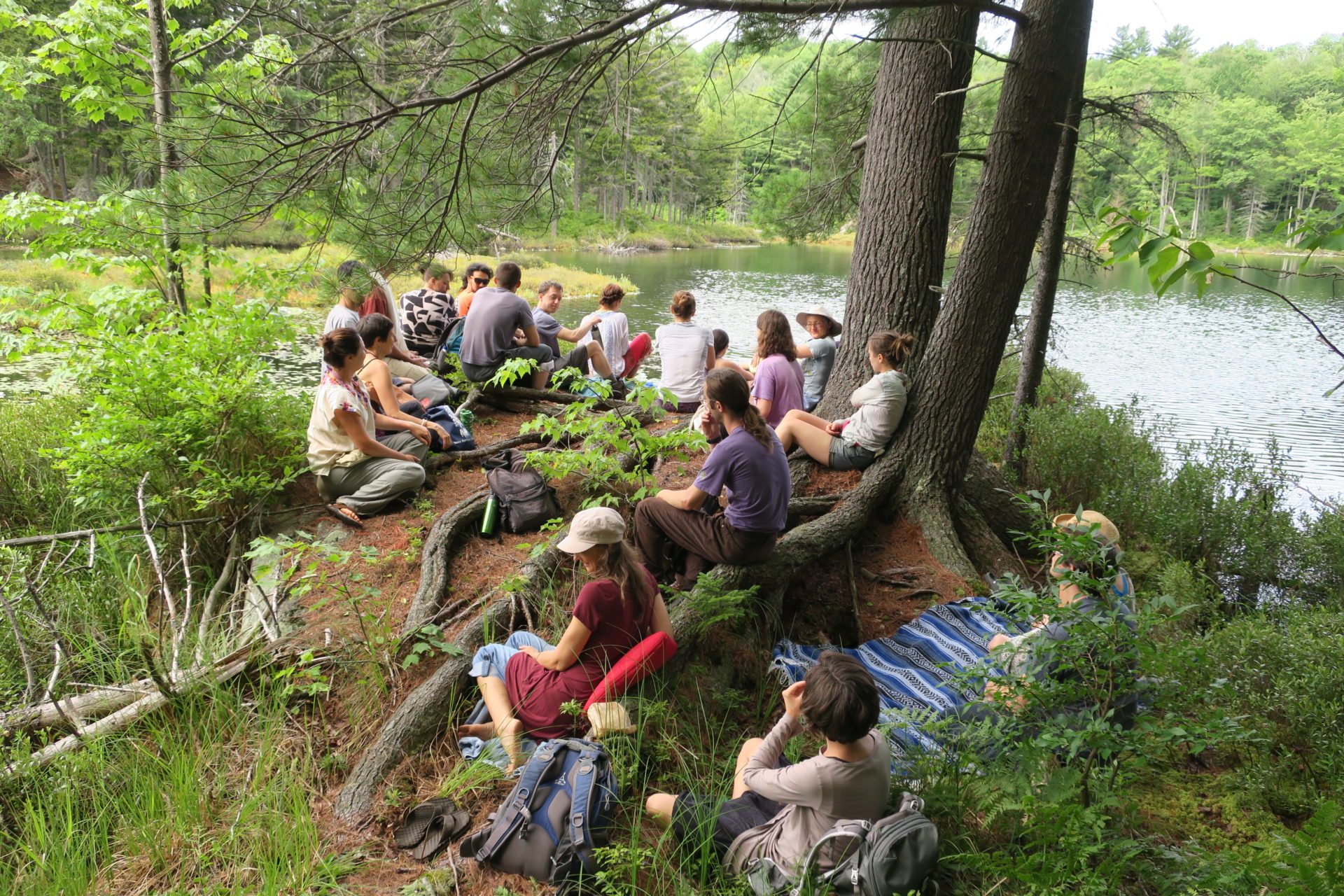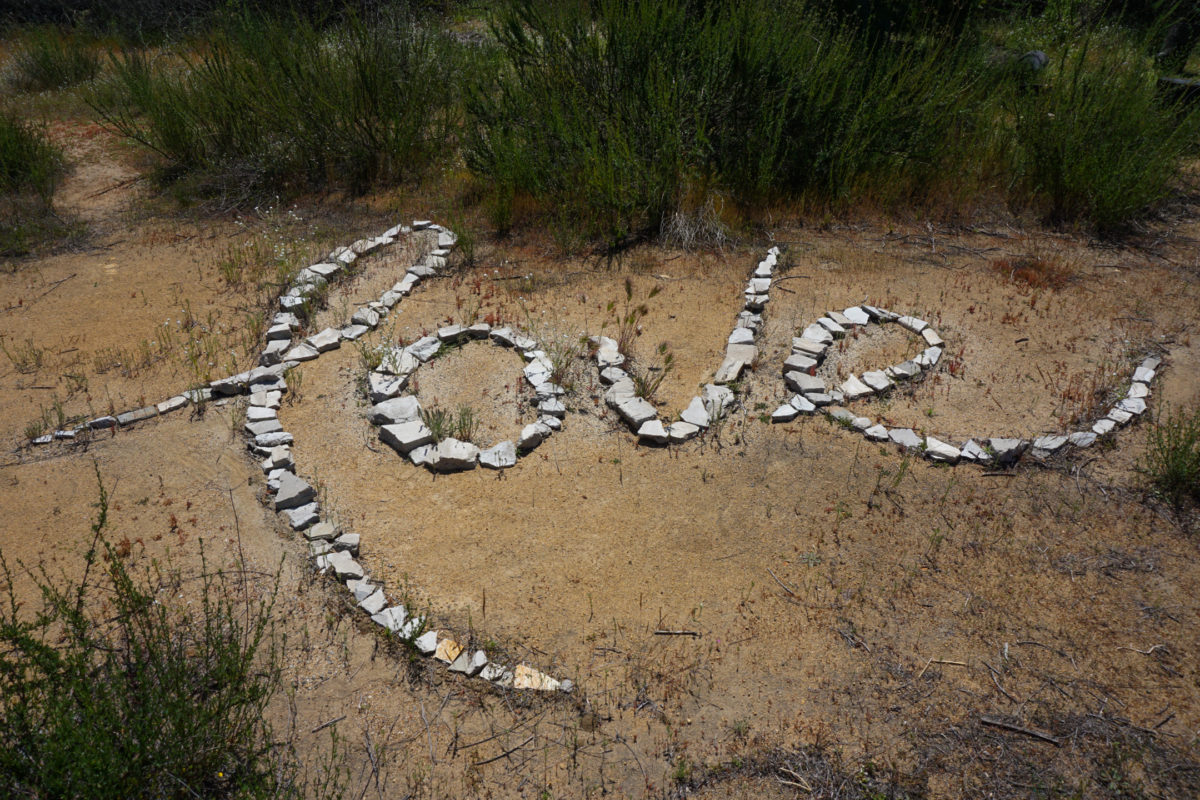
Blue Cliff Monastery hosted a Sacred Justice Retreat on January 18, 2016. This is an excerpt from the retreat’s Q&A panel on mindful activism—a conversation about the challenges and successes that can come with activism and spiritual practice.
Sangha members posed the following themes for the panel:
How can I explain to my family my meditation, mindfulness, and activism practices so they understand?

Blue Cliff Monastery hosted a Sacred Justice Retreat on January 18, 2016. This is an excerpt from the retreat’s Q&A panel on mindful activism—a conversation about the challenges and successes that can come with activism and spiritual practice.
Sangha members posed the following themes for the panel:
How can I explain to my family my meditation, mindfulness, and activism practices so they understand?
What is the line between “being the change you wish to see” and seeing what can’t change right now?
How do you move from seeing, feeling, and resonating with others’ suffering to effective action not clouded by anger and feeling overwhelmed?
How do you respond when people mock your sense of caring, especially about painful situations?
The word ‘resistance’ doesn’t seem to convey the mindfulness of Buddhist practice. What word would one use?
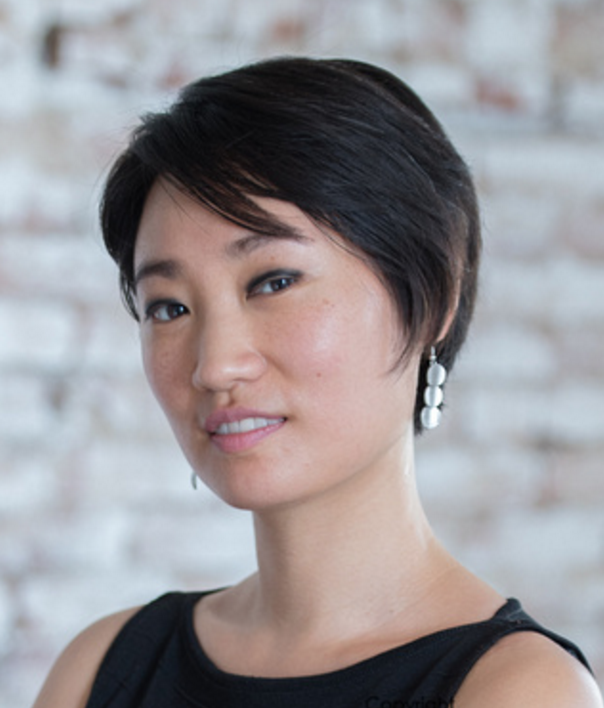
SANDRA KIM:
When we’re doing this work, I think it’s incredibly important to be present, to bring mindfulness and acceptance of reality into it. If we’re confronted in a situation, we want to see something different because we can see there is some sort of injustice happening, some sort of dehumanization. It’s very important to get present to what is happening within us and within other people by observing what is going on and letting go of the story that we have around it. When we can accept the reality of what is, then we can see a clear action to move forward. What gets in the way is that we so desperately want it to be different, and that we’re not moving as fast as we would optimally like to be. This is where we are; this is the starting point. Progress is a series of some small movements forward. So it’s the ability to hold both at the same time: to accept, to be aware of what is happening right now, and then keep in mind the larger vision that we’re trying to create a world that is positive and loving and just.
We have to deal with the pain that we have inside of us. We have to deal with what’s in front of us, not bringing our story, our attachments and meanings. The ironic thing is that when we give up our systemic analysis and get to just be in the moment with somebody and with ourselves, then we can see the humanity, then we can be loving. Because we are connected as human beings, we are not making the other person wrong. We are not judging them. We also are not attached to them being different than they are; they just have their unconscious conditioning. Whatever they are saying seems to make complete sense to them, even though it doesn’t to us, but we accept that and we work with them from that standpoint.
My answer to all the questions is to be 100% committed, 100% unattached, and 100% in community. What does that mean? 100% committed to a vision that is both inspiring and strategic, and then 100% unattached. We can be present to what is going on right now, but we have a vision of how we want the world to be. So instead of focusing on what we think it is, or projecting from the past onto the future, we say, “What is it that we want to create?” And keep checking in so that we keep making movements forward.
Because we have a social justice, anti-oppression, systemic analysis, we know how to make it strategic. Most folks in the world, due to their unconscious conditioning, don’t know what’s strategic. That is the contribution that we can give to the world. We can join the good intentions with the skillful practices with a strategic vision to move toward.
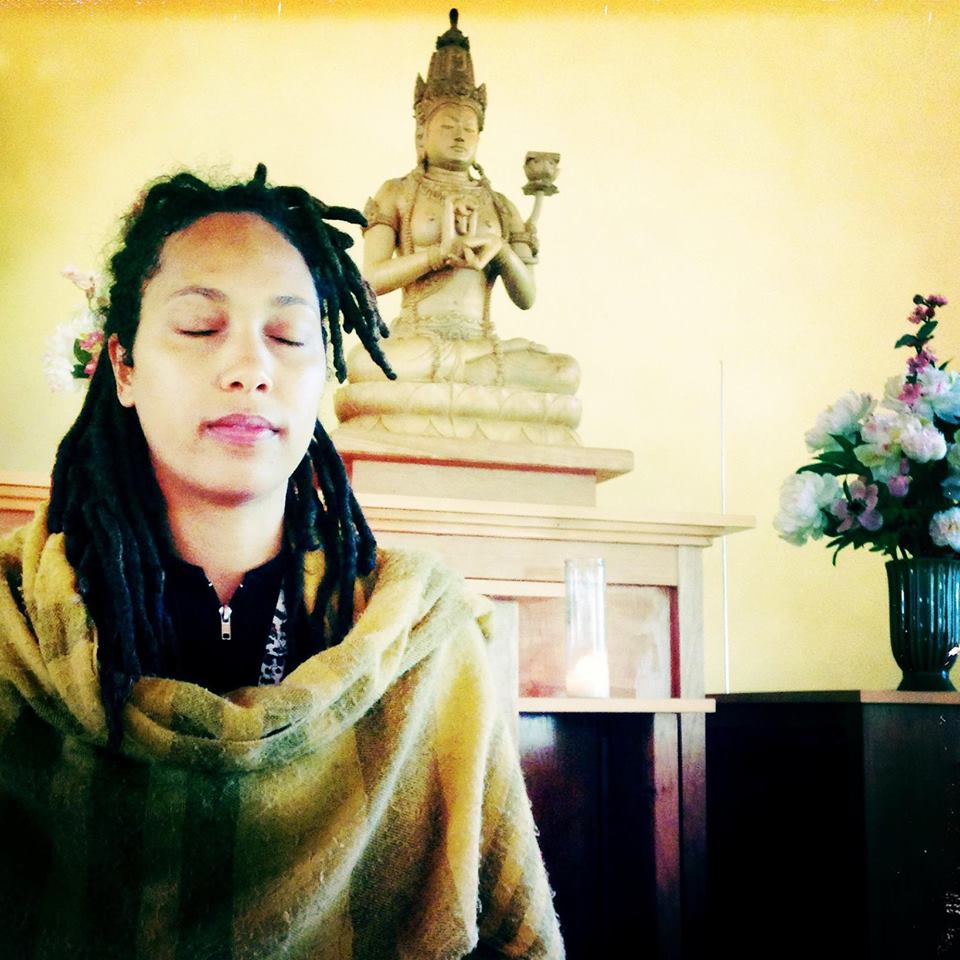
DANIELLE SAINT LOUIS
I’d like to speak to the question, “How do you feel the pain but not get overwhelmed?” I want to speak a little bit about my practice, and a little bit about what’s been happening in our country related to Black Lives Matter.
When Mike Brown was murdered, I was in this point of reflection about deepening my practice. Instead of going to Ferguson, where many people I knew were going, and where I had a very strong pull to go, I went to a ten-day Goenka Vipassana retreat. I was aware that I was going to the retreat in my way of connecting to what was going on in Ferguson. On that retreat I was very methodical and did what they told me to do. I can’t say that I consciously worked with my pain, but I embarked on a year of a lot of retreat time.
Fast forward to the wintertime. Receiving [news about] verdicts, being active with Love Circle Sangha, creating events in support of and holding community—that was my way of opening up a little bit to the pain for myself, and opening up to being held in community. Fast forward to the summer. Having spent a month on retreat, practicing metta [loving kindness] towards myself—which was a deep practice and very, very confronting—I became very aware of how critical I am of myself, of how unloving I am to myself, of how little compassion I had for myself.
Whether or not I was ready for it or willing to do it, when I came off of retreat, my body took me there. I started to encounter a lot of health issues. I experienced extreme fatigue to the point of not being able to walk up stairs comfortably or complete work. I was experiencing physical withdrawal and confronting, “How can I be compassionate to myself?” That turned into a lot of space for me to cry at home. I would wake up in the morning and be exhausted and overwhelmed with the fact that I had things to do that I couldn’t do. I had to slowly get used to where I was and what I could do for myself in that moment. I had to let go of my identity around being an athlete. I had to let go of my identity around being single and taking care of myself. I moved through that, and eventually my health did improve.
Fast forward to six months later, today. I’m seeing these glimmers in my life of extreme pain. I realize I have a fear of being eliminated. So I’ve been working with that fear. A sidebar is that I was arrested by the NYPD; things happened to me that put me in direct contact with this fear. I’m aware of this and noticing it in moments of my life now. Because I took the time to really be with myself and my pain, I can touch these moments and watch them pass by and allow myself the space to say, “That is what it is.” And, “We’ll have our time together another time.” Or, “Let me for a few seconds be with you.”
On the hopeful side, I’m also noticing the same thing with moments of joy. Instead of taking a vacation and being away for eight days, I have these moments where I’m just taken by the joy of the moment where I am. Just acknowledging that to myself is a gift.
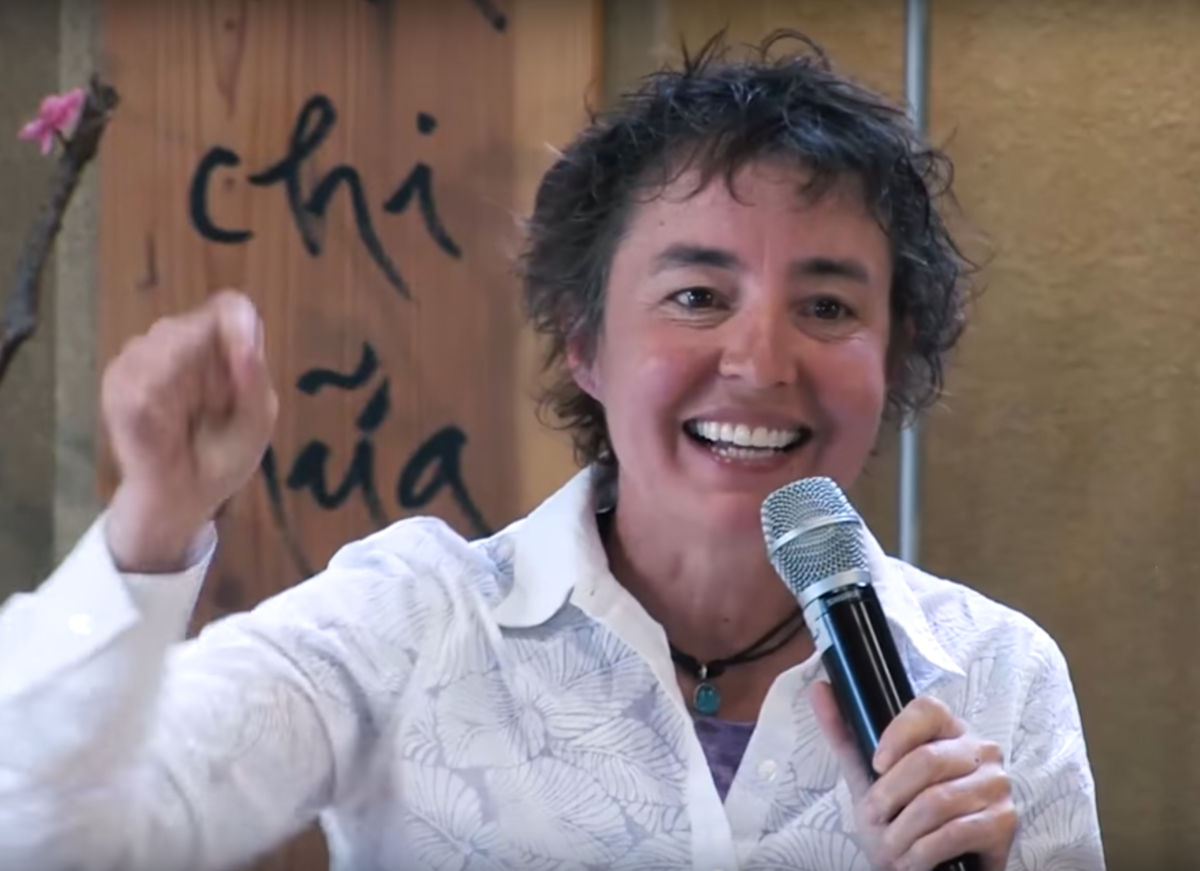
KRISTIN BARKER:
I’d like to point to all the harm that comes from the separative consciousness. So much of our lives now and our connection to Mother Earth are mediated, and this has not been the history of the human race. We have been deeply connected, interwoven, with Mother Earth. It is our birthright to be deeply connected to the boundless generosity of Mother Earth. In that participation, that re-integration, there is healing for us—every breath we take is participation with this generosity. In that, we naturally protect what we love. We naturally want to rejoin in this and help our communities rejoin in this.
One of the ways that the separative consciousness manifests is that we see ourselves as separate, we see our issues as separate, we see their remedies as separate. So part of my answer to the questions is Sangha, and is to recognize that Gaia has an immune system that is diffuse. We can see ourselves as part of a system that is responding, that we are working together. Gun control doesn’t look like working on climate change, doesn’t look like working on racial violence. And yet these issues are all rooted in greed, hatred, and delusion. When you work on gun control, there are fewer guns when things break down because of climate change, and so we’re all better off; the social fabric is stronger. The pain that needs to be experienced is the collective pain, and when we allow it, we are helping the system to get its information. Pain is information in the system. What is needed here is a collective awakening; it is ours to lean into this collective suffering together.
When there’s mockery of our open heart, I would read that as pain and overwhelm. I would try to see it for what it is, maybe fear about encountering pain, not knowing how to handle it. Then maybe join with it: “I hear you; you’re not quite able to connect right now.”
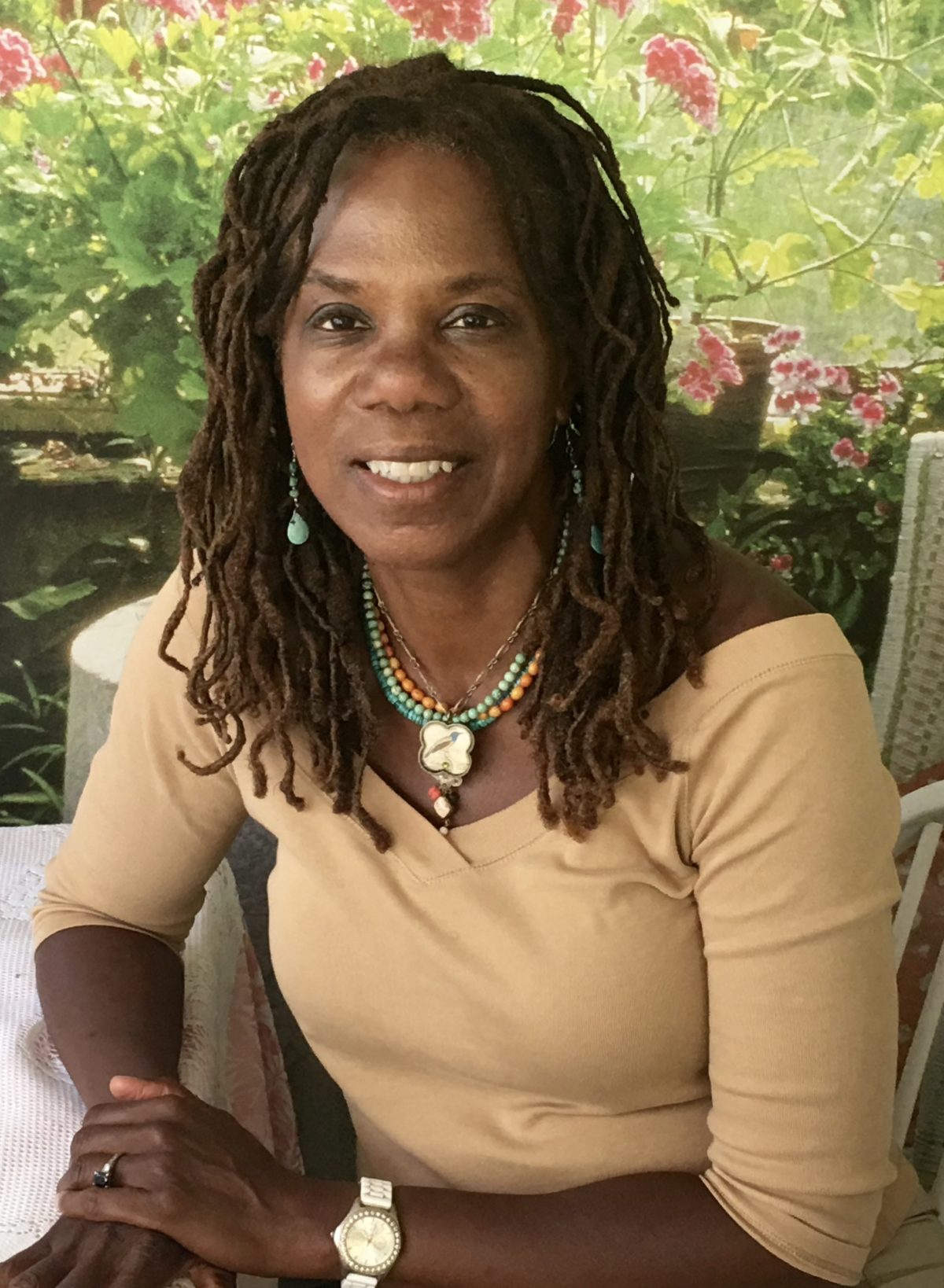
VALERIE BROWN:
For the question about sharing the practice with your family, several things come to mind. I think it was the Dharma teacher Joseph Goldstein who said something like, “You can transform with everybody in the world except your family.” And in Zen circles, there’s a saying that if you practice meditation even for five minutes, and then you go out and walk the dog, even the dog benefits. The effects of practice are palpable to all beings.
What I’d like to share is not something that I invented, but what I’ve learned through the practice, through our teacher, Thich Nhat Hanh, and through this community. Knowing that it’s very difficult to transform with one’s family, I decided that I would start practicing at work. The job of a lobbyist is to be able to be a neutral but also an advocate. As a neutral, my job is to talk to warring parties—to the most conservative Republican and the most liberal Democrat—and to influence that person to do something that they normally would not do. I would practice love and kindness with the most conservative Republican, say, someone who might be at the opposite end of the spectrum from my own political beliefs. I would have a conversation face to face with that person and I would soften my body, I would soften my mind. I would notice my thoughts and perceptions. Mentally, I would make note: this is a thought of judgment, this is a thought of anger. I would notice in my body: my face is feeling flushed. Then I would soften, soften, and keep saying to myself, soften. I would also say love, and love, and love. As I’m having the conversation in the capitol building with that person, this is what would be going on in the “back office.” This is what I would be doing.
Little by little, doing that, I would be able to shift my words. I would ask, “How do you see this? What is your opinion?” I would take a genuine interest in the person. Perhaps they would perceive me as someone they couldn’t trust. The most conservative Republican would look at me with dreadlocks, and say, “I can’t trust this person. This person represents this.” But I shifted in my body, my perception, the way I was thinking, and the way I was feeling, to a sense of generosity, a sense of love toward that person. They would perceive that and they would speak differently toward me, and then we would come closer together in our difference of opinion about a piece of legislation.
I would commend that practice to you. To soften, to take genuine interest in the other person. To express, in every cell of your body, love and compassion for that person. To see that person as yourself, and then see what happens to how you speak to that person.
I apply the same principle with my family. Rather than preaching at them, “You really shouldn’t eat that, or you really shouldn’t do that, or you really shouldn’t say that”—which may or may not be true—I express love. I hold them with so much affection and so much love that the expression of love is the Dharma. I don’t have to convince them of anything. And in that, they transform themselves; we transform together.
We are very lucky because we have specific instruction about how to deal with overwhelm and rage. The instruction from our dear teachers, not only Thich Nhat Hanh but also Reverend Martin Luther King Jr., is very specific. Never succumb to the temptation of becoming bitter. As you press for justice, be sure to move with dignity and discipline, using only the instruments of love. That is the practice. We make ourself an instrument of love.
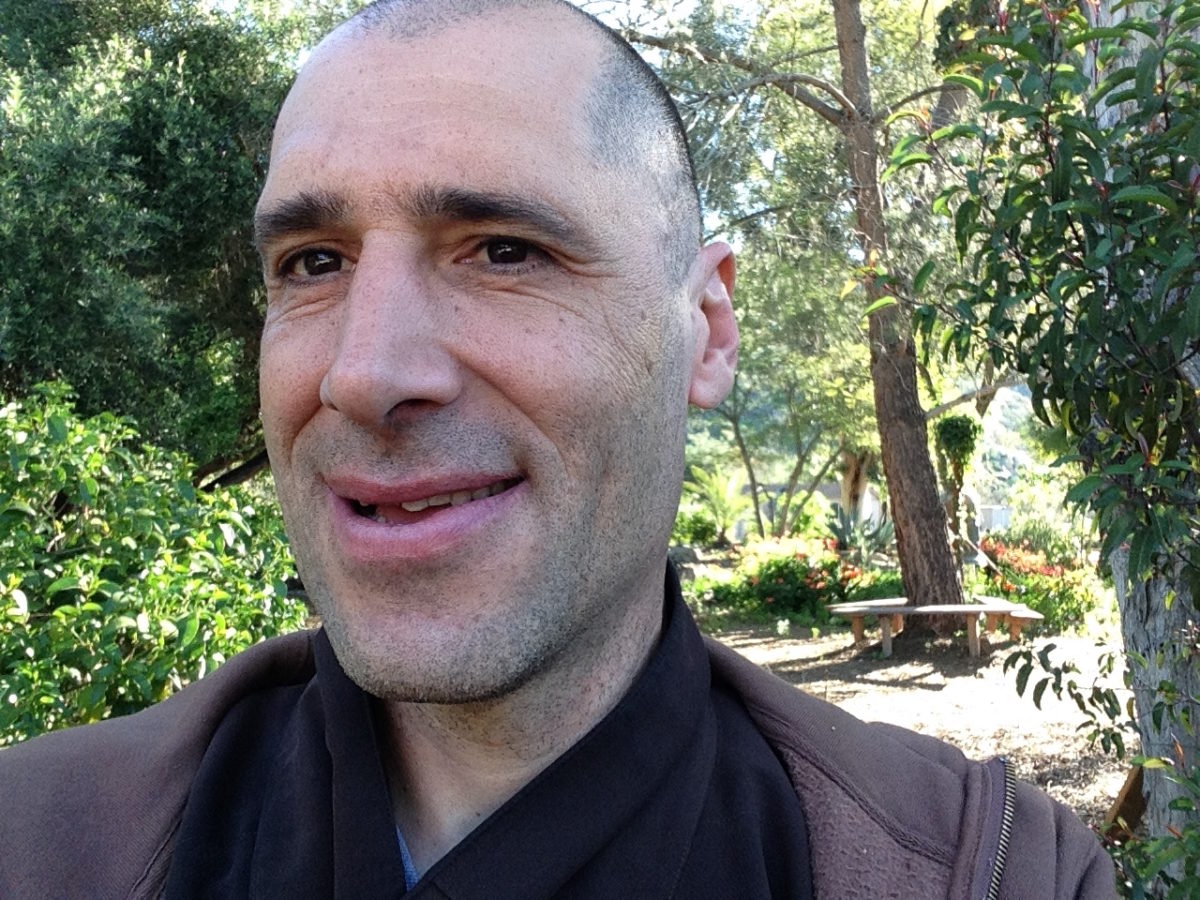
BROTHER PHAP MAN:
After I woke up this morning, I started thinking about all the things I’d like to change. I’d like to change little things here and there to increase well-being for myself and my community. Then I sat down to watch the sun rise. That is what I did. And I came back to my breathing and to my body. I started to become aware of what it’s like to want to make a change. After a few minutes a thought came to me: I don’t have to change everything right now. And everything is already changing. My practice was to be present with what is in me and around me, to make a commitment to cultivate my own heart of acceptance, to accept how I felt in this moment.
I thought of the people that I’m in some tension with, maybe because I’ve experienced pain in terms of our communication. Maybe I feel there’s some kind of misunderstanding, or the way that we are trying to meet our values is not harmonizing. There’s this sense of a conflict. I said to myself, “I am suffering.” I had space this morning, and I could see some of those people and those faces, and I thought to myself, they are also suffering. Maybe they have pain in their body, or their feelings, and they are feeling some kind of tension also. When I started to get in touch with our common ground, our connection as human beings, the feeling of compassion started to come up. That gave me some space. I sometimes feel anger or even hopelessness, and I’m seeing that those feelings are okay. I’m learning to make space for them.
Without time and space to rest, to allow things to be, there can’t be a process of healing. So for me, the practice is resting. Resting in God. It means resting in this sense that there is more than I can possibly understand or perceive, that it’s much deeper, but I’m connected to it beyond my intellect, beyond my feelings. Also there is just practical rest, getting enough sleep and enough food to eat—those are, for me, very primitive but very essential.
The power of community for me is that I don’t have to do that alone, and I can’t do it alone. The possibility of resting and healing depends on having the collective energy available when I need it—when I am in deep despair or deep pain, and I need release. The beautiful thing about our community is that, because there is training in deep listening, I have had the opportunity to express that pain, that deep wound, and to cry, and to release that, and to be held. This has been essential on the path of healing for me. It is extremely powerful to cultivate the power of empathic listening—just to be there, to be present.
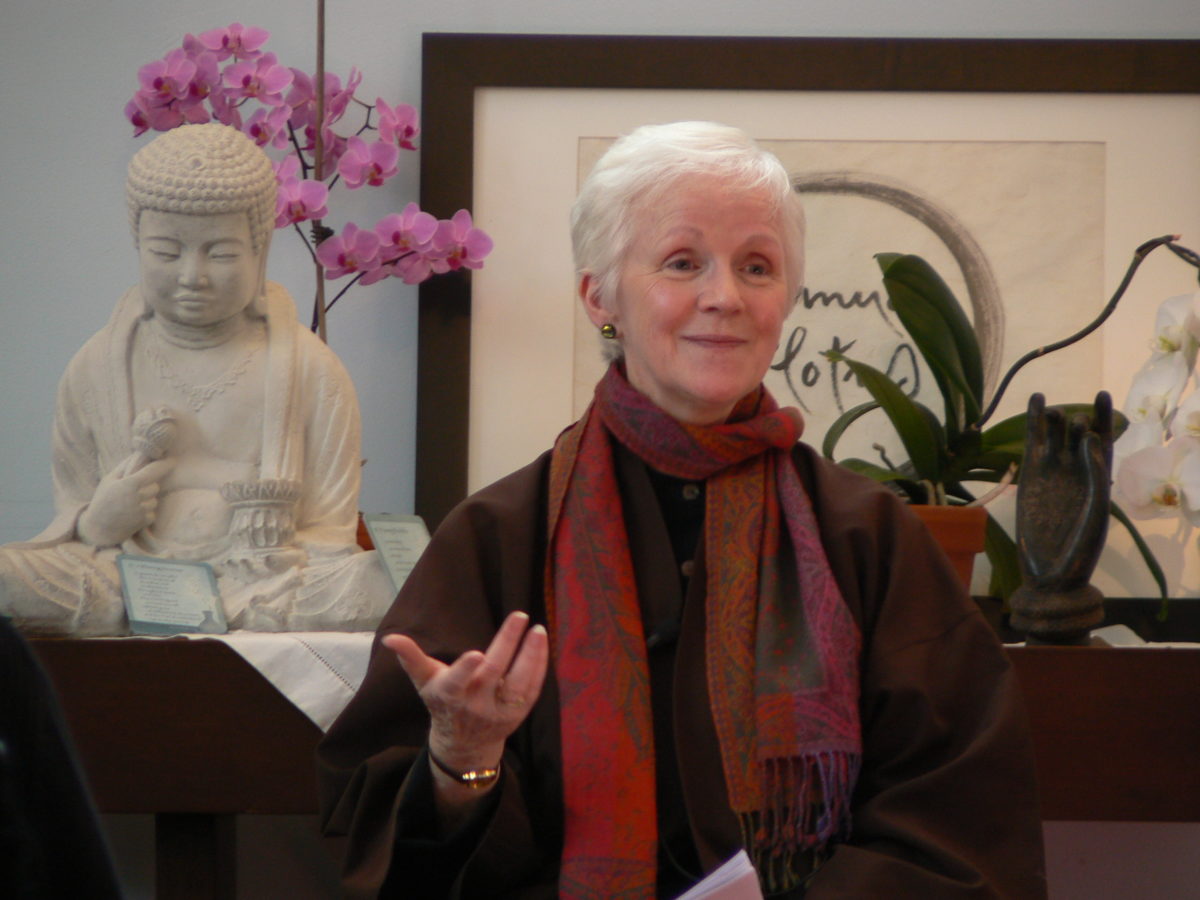
JOANNE FRIDAY:
I’ve been in the presence of Thich Nhat Hanh when he said, “Don’t kid yourself. We are a community of resistance. We are resisting being dispersed by the culture in which we live. Simply by deepening our practice, that’s what we do.”
I met Thay at a retreat when he was working with Vietnam veterans. One of the veterans turned to Thay and said, “How could you not hate us after what we did to your country?” He responded without hesitating at all. He said, “Nobody ever wins a war. Everybody’s a victim in a war.” I had been powerfully conditioned to hold on to resentment and anger. When I heard that—from a person whose entire life had been turned completely inside out, who suffered losses I can’t even begin to imagine; everything he had built up had been destroyed; the people he loved had been killed; he was in exile—when I could see that he was responding with nothing but understanding and compassion, I knew he was my teacher. During the Vietnam War, I had observed a lot of anger, hatred, resentment, and rage within the “peace” movement. When I met Thay, I knew that he knew how to create peace on Earth.
A practice that has been powerful for me has been healing the past in the present moment. When I get overwhelmed by strong feelings—rage, anger, self-righteousness—when I follow that back, I find a very old block of anger and resentment in my consciousness. Thay says whenever there’s a difficulty, if we look deeply enough, we come to a place of recognizing there was a misperception. When I look deeply at the root of the suffering, when I look at the root of my anger, I go back to my childhood, very frequently, to being powerless. I can sit down with myself as a child and have a conversation, and reassure that child that she took everything personally. As a child, I didn’t know any better. I took everything as being about me. The anger, the abuse that was focused on me—I thought it was all about me. I thought if I was only different, then it would be okay. This is a total misperception. When I can go back now and sit with myself as a child, I can see that it was the suffering in the adults in my life; it had nothing to do with me. Huge amounts of healing have happened for me in correcting that misperception.
When I can take good care of those wounded places in myself, and I can do the healing, then I am much better able to be fully present for what is in the present moment. I am not viewing other people’s suffering through my own lens of suffering. When I can take care of my suffering, I’m free to see other people’s suffering real clearly, and all I want to do is help. Instead of being angry, I have nothing but compassion because I can see clearly the suffering in the other person. I have no need to forgive anybody or myself, because when I look deeply enough to understand, there’s nothing but compassion. There’s no blame, so there’s nothing to forgive. Thay tells us that understanding is the basis of love.
What Thay has given us, what Dr. King has given us, is an absolutely clear road map in how to transform and heal our own suffering so that we can be the change that we want to see on the planet. Dr. King said, “Never let any man make you stoop so low as to hate him.” Our practice trains us to choose where we place our mind. When I choose where to place my mind, my happiness doesn’t need to be dependent on anybody or anything outside of myself. I can choose how to respond, how not to respond. It is such a gift.
Sandra Kim is the Founder and Executive Director of Everyday Feminism, an online magazine about applying intersectional feminism to deal with everyday violence, discrimination, and marginalization. She leads Compassionate Activism, a training program helping people heal from systemic oppression and respond to everyday oppression with love and justice.
Danielle Saint Louis practices with the Love Circle Sangha and Brooklyn Zen Center, where she is Executive Director. She grew up in Western Massachusetts.
Valerie Brown met Thich Nhat Hanh in 1995, started Old Path Sangha in New Hope, Pennsylvania in 1998, and received the Fourteen Mindfulness Trainings in 2003. Formerly a lawyer-lobbyist, she now works with leaders and teams to foster greater mindful awareness and trustworthy relationships.
Brother Phap Man came to the monastic life with a wish to discover radical community and what that means. After college, he became a Peace Corps volunteer and lived in a rural village in Nepal, where he got deeply in touch with suffering and the power of community.
Joanne Friday sits with the Rhode Island Community of Mindfulness and is a Dharma teacher in the Order of Interbeing. She became an activist during the Vietnam War and has been trying to incorporate what Thay teaches to be much more effective than she was then.

